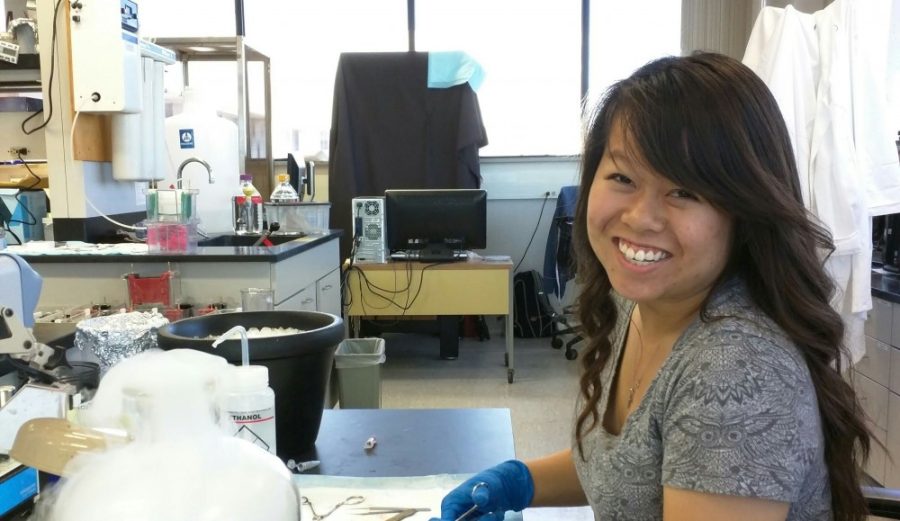This semester, in a conscious effort to recognize women for their contributions to science, the Daily Wildcat is running regular profiles of UA women who hope to change the world through their passions for knowledge. Some of the women to be featured are only just beginning their careers in research or medicine, while others have already impacted the decisions of aspiring young scientists through teaching and mentorship
Each woman in the series was asked to discuss another female scientist who influenced her decision to enter her chosen field. Like the role models they discuss in their profiles, each of the women featured this semester will go on inspire girls and women to follow their hearts into the sciences. We continue our series today with a profile of Lindsey Chew, a sophomore studying neuroscience and cognitive science, who one day hopes to earn a doctorate in pharmacology and work as a pediatric neurosurgeon.
Lindsey Chew has always had a passion for science and medicine. As a high school senior at Hamilton High School, Chew began a program called Operation Origami at Chandler Regional Medical Center.
Chew folded paper cranes for patients and their families, and offered to pray with them in an effort to raise the spirits of sick patients. Chew estimated, in an interview with the East Valley Tribune, that she folded more than 12,000 paper cranes during her high school career.
Chew began her journey as a scientist at the UA upon graduating from high school and receiving a Flinn Foundation scholarship in 2014. She is already making an impact on the UA’s scientific community, having participated in the Undergraduate Biology Research Program and performed clinical volunteer work in South America with a program called Vive Perú.
Chew currently works in the lab of Dr. Rajesh Khanna, an associate professor of pharmacology who specializes in neuroscience and pain research.
“My work in the Khanna lab aims at investigating the molecular mechanisms underlying the hypersensitivity of cells that respond to pain and migraine,” Chew said. “In the future, I’d like to pursue an M.D./Ph.D. in pharmacology and work as a pediatric neurosurgeon in an academic medical institution.”
Chew hopes to one day adopt an African grey parrot, in addition to pursuing a future in science.
Chew described her role model, Dr. Anita Koshy, an assistant proessor in the UA’s Department of Neurology.
“My favorite woman scientist is Dr. Anita Koshy, who works in BIO5 and is an assistant professor in the Department of Neurology. She is certainly a role model to me as both a physician scientist and mother. Balance is so important for professionals, and she does a particularly incredible job, as she divides her time between clinical and research hours, home with her family, and work with manuscripts or grant applications. I certainly admire the success that she’s had in navigating both the academic and filial realms. Her work as a neuroscientist encourages me to pursue any scientific aspirations I dare to conceive. Her work as a clinician is a striking example to me of compassion and excellency in patient care.”
Follow Lizzie Hannah on Twitter.









